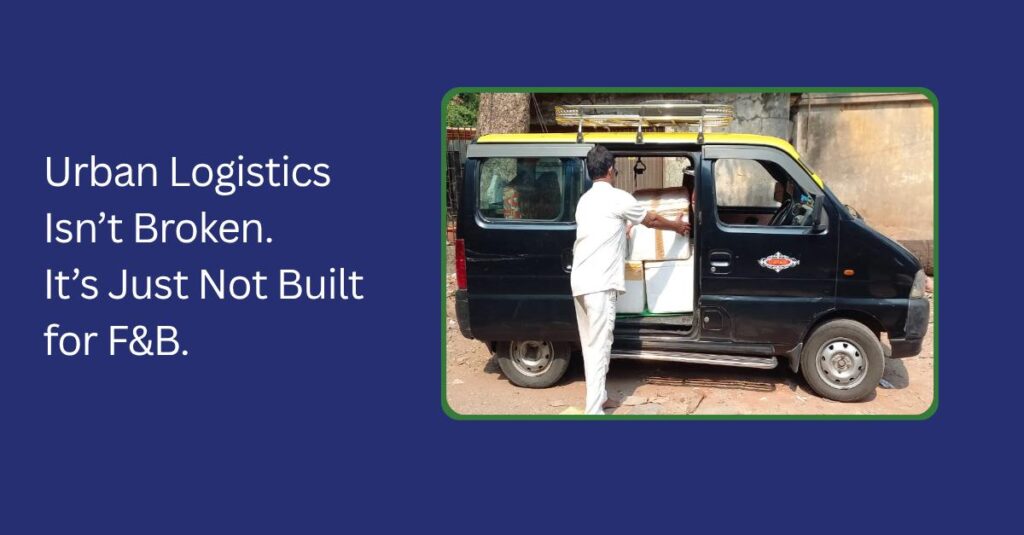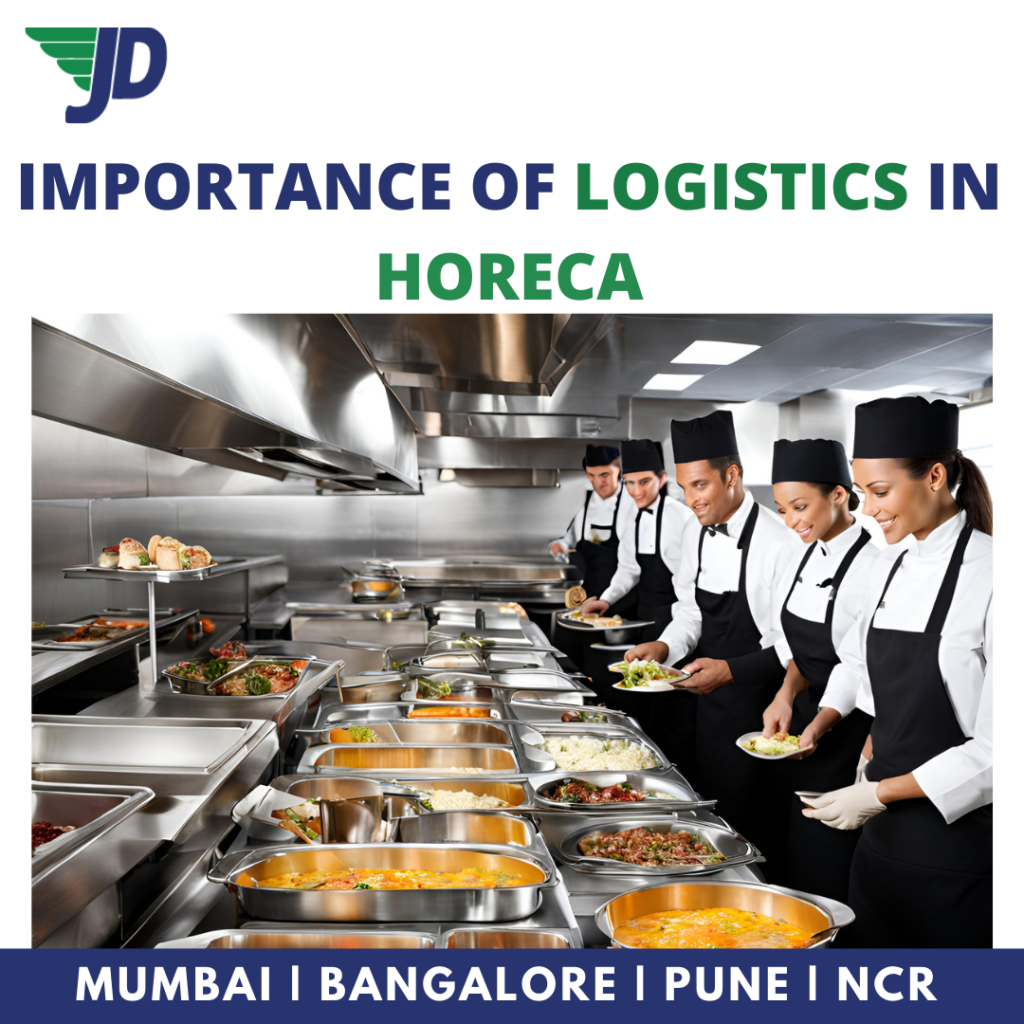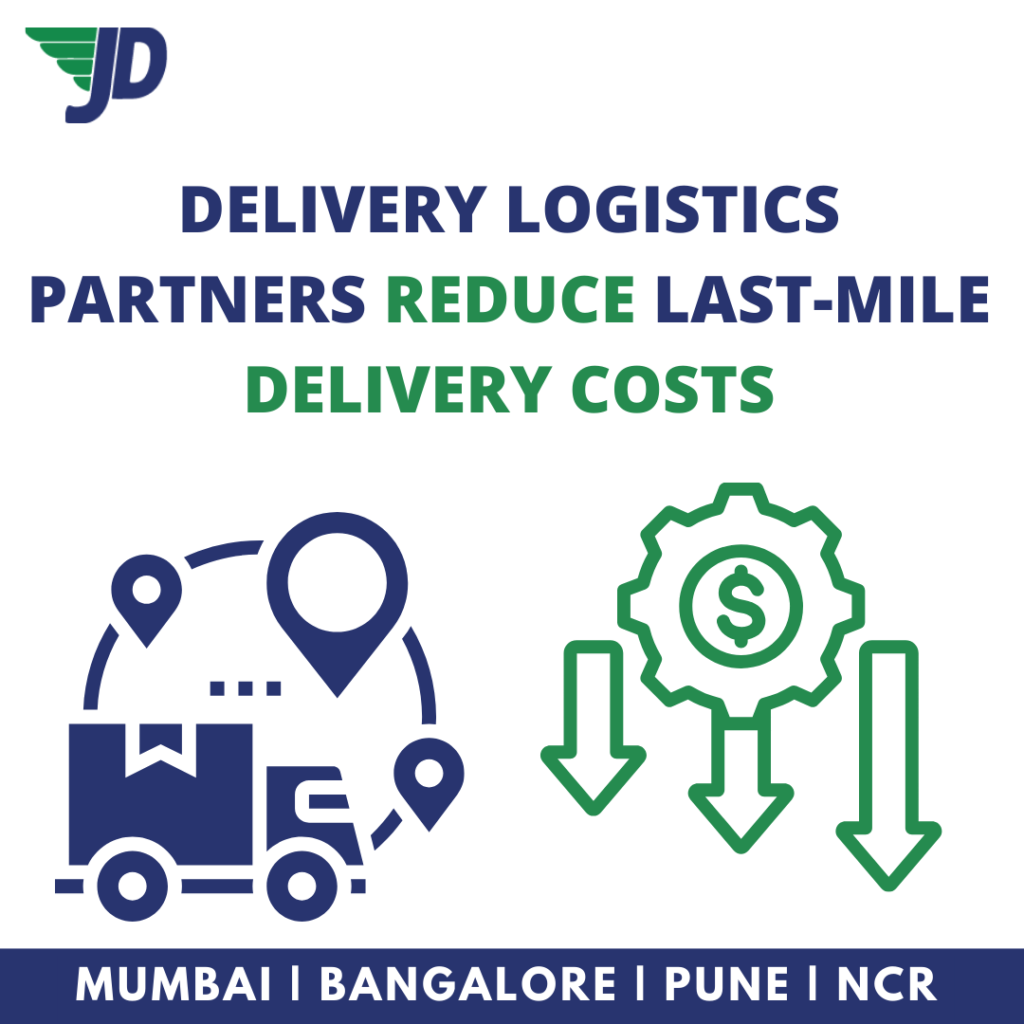The Flawed Fit
Urban logistics today is like wearing a pair of borrowed shoes. It works, sort of, but not quite right. Especially for the food and beverage (F&B) industry. Most logistics systems were built to serve retail chains, e-commerce, and industrial needs, not the unique, high-pressure world of perishable food items that need to move fast, stay fresh, and comply with tight regulations.
You cannot use the same network designed for delivering T-shirts to also handle fresh milk or sushi-grade salmon. These goods are fragile, time-bound, and sensitive to temperature. Yet, F&B brands are expected to squeeze into the existing logistics infrastructure, designed for dry freight with broad delivery windows and little urgency. No wonder it feels inefficient.
But it is not a broken system. It was simply never designed for the needs of a central kitchen delivering to 20 outlets by lunchtime, or a cloud kitchen fulfilling 300 orders a day with temperature-sensitive ingredients. The F&B supply chain needs something else entirely. This is where modern cold chain players step in.
What F&B Actually Needs
At JustDeliveries, we believe that food and beverage logistics should not be an afterthought. It should be the main thought. Every minute counts, every degree matters, and every route must be optimized with food safety and freshness in mind.
Consider the concept of shared logistics. A van carrying produce from multiple vendors to a central distribution point reduces cost and carbon footprint. But this only works when the van is equipped with temperature control and a driver trained in food safety. It is not just about moving from point A to point B. It is about preserving shelf life and reducing wastage.
Our cold chain solutions are built specifically for F&B. Think central kitchen to store movements, multi-temperature vehicles, strict standard operating procedures, and real-time temperature and route tracking. The result is reduced spoilage, fewer delays, and satisfied customers at both ends.
We also provide data. Clients gain visibility into which outlet consistently delays unloading, which route causes temperature spikes, and which days face more delays due to market traffic. These insights help them adjust in real time instead of waiting until the end of the month. industry.
The Sustainability Myth
Many believe cold chain logistics is expensive and not sustainable. But this is only true when done the old-fashioned way with half-loaded trucks, delayed dispatches, and zero tracking. In reality, efficient urban cold chains reduce food wastage, cut idle time, and save more than they spend. When designed well, they are not just sustainable. They are smarter.
We have worked with fresh produce suppliers who reduced rejections by 80 percent after switching to temperature-controlled deliveries. We have helped cloud kitchens meet service-level agreements with food aggregators like Swiggy and Zomato by ensuring delivery windows are never missed. All this was done without owning a single truck. That is the power of network-based logistics.
So Why Isn’t Everyone Doing It?
Because the traditional logistics mindset still dominates. There is a bias toward scale, ownership, and long-term contracts. But F&B is agile. It needs partners who are flexible, quick, and accountable. It needs someone who understands why a 20-minute unloading delay can ruin a day’s prep. Someone who knows that chilled is not the same as frozen. That ice cream requires minus 18 degrees Celsius, not just “as cold as possible.” This is where startups have an edge. We do not just follow logistics norms. We question them. We operate closer to the kitchen than the port. We design solutions around the chef, not the shipment. And we build for today’s urban F&B ecosystem, not yesterday’s retail chains.
Conclusion: It Is Not Broken. It Is Just Misaligned.
Urban logistics is not broken. It just was not built for F&B. But it can be. With the right partners, the right tools, and a mindset focused on freshness over freight, the system can evolve into something efficient, scalable, and sustainable.
At JustDeliveries, we are not trying to repair something outdated. We are building something entirely new. For the kitchens, the cloud kitchens, the quick commerce players, the agri-exporters, and the restaurateurs who are shaping the future of food. Logistics that is not just fast, but fresh. Not just reliable, but respectful of what is inside the box.
Because in the world of food, logistics is not a backend function. It is the front line.

Mansi Mahansaria
I’m Mansi Mahansaria, CEO and Founder of JustDeliveries, a B2B logistics company specializing in the food and beverage sector. With a background in Chemical Technology (ICT Mumbai), an MBA (FMS Delhi), and experience at IDFC Private Equity and Tata Group, I’ve built a plug-and-play logistics network helping F&B brands scale efficiently. I also share insights on entrepreneurship and logistics at industry and academic events.






